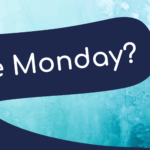This blog does not mention specific calorie numbers. It does contain information about one person’s experience of eating disorder recovery.
In 2021, the UK Parliament agreed on a new law: cafes, restaurants, and takeaways in England with more than 250 employees have to include calorie information on their menus (and a message about ‘how many calories adults need a day’). The law took effect on Friday 1 April 2022.
The idea behind the law is that it will encourage people to choose different (lower-calorie) options when they’re eating out – the government thinks that this will make people healthier. But the reality is far more complicated.

The research on calorie labelling
First of all, you might be surprised to know that evidence suggests that putting calories on menus doesn’t actually encourage people in general to choose lower-calorie options.
The new law was made without any UK-specific evidence to back it up. Other studies have found that most people quickly stop noticing the calorie labels. And in the US, where large chains have had to put calorie information on their menus since 2018, there’s no evidence at all that it’s made a positive difference to people’s health.
Nutrition isn’t simple
Calories are units of energy – and that’s all they measure. Lower calorie foods aren’t necessarily ‘better’ because calories don’t tell us about nutrients, for example, or whether a meal or snack will be satisfying and help us sustain our energy levels.
Menus also now have a message that adults need ‘around’ a certain number of calories each day – but the NHS guidelines point out that the amount of energy people need depends on lots of individual factors like how old they are, how active they are, and hormones and medications.
And while food is the fuel our bodies need to work, it’s important to remember that it can also be so much more. Food has important social and cultural meaning, whether it’s part of celebrating a religious festival, a way to bond with friends, marking a special life event, or a way to share something special about your culture.
Taylor’s experience
The new law will make eating out more difficult and distressing for lots of people experiencing eating disorders like OSFED, binge eating disorder, anorexia, and bulimia.
‘When I was unwell, I counted calories obsessively,’ says Taylor*. ‘I would only let myself eat up to a certain number every day. Part of recovery was learning to let go of that and understand that I need to eat all sorts of foods for my health and happiness’.
For Taylor, recovery involved lots of hard work. ‘I had to make deliberate choices not to look at calorie labels on food at home’ they explain. ‘At the time, it was a big challenge for me to go to a restaurant that didn’t publish calorie information online… but it was so important for my recovery.
‘Back then, if a restaurant had calories on a menu, my friends would read the dishes and prices out to me so I didn’t see the calorie information. If I’d seen, I wouldn’t have been able to make the decision that the real me – the me making their choices free from an eating disorder – wanted to make’.
Taylor’s doing really well in recovery, but they’re still concerned about the effect calorie labels will have on them. ‘I’m used to avoiding the back of packets at home, and blocking diet ads on social media, but when I’m confronted with calories on a menu, it’s difficult,’ they say. ‘I can quickly get lost in old, disordered thoughts and feelings because you can’t help but see the numbers. It’s scary.’
The effect on other people with eating disorders
Most of all, Taylor’s concerned about the impact of the new law on people who are at risk of developing an eating disorder, and people who are earlier in their recovery journey.
‘I think it’s really irresponsible. Lots of people who have had eating disorders spoke up, and said that this would really make things difficult, and it feels like we’ve been ignored.
‘It isn’t enough to say that places can have a calorie-free menu option if they want to. If it’s a choice, some places won’t. Some people won’t want the people they’re with to know they need to avoid calories. And recovery is filled with enough challenges already – people don’t need the added pressure of battling their eating disorder (which often tells them to seek out calories and make calorie-based-choices) to ask for a special menu’.
Advice if you’re struggling with this new law
Beat, the eating disorder charity, has put together some helpful advice for eating out now that calories are labelled on menus.
They talk about planning to eat out, building the skills you need, using your support system, and managing the thoughts and feelings that might come up if you can’t avoid seeing calorie information. You can find Beat’s advice on their website.
‘The impact of calories on menu will be considered within psychological intervention when service users are going out to eat,’ say Olivia Rowe, Senior Cognitive Behavioural Therapist and Early Intervention Lead. ‘There will always be potential triggers for people with eating disorders in their everyday lives, we can’t control this. What we can control is how they react and respond to triggers. It is important that people are aware that this could potentially be a trigger, learn how to cope with it and to try and ensure the trigger does not lead to a spiral’.
* Taylor isn’t this young person’s real name.





















































